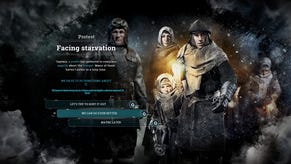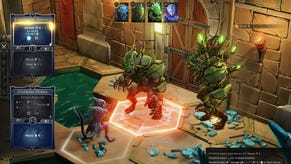Koster: The industry needs new inspiration
Raph Koster, the man behind forthcoming browser MMO project MetaPlace, has explained his views on how the genre needs to develop.
Raph Koster, the man behind forthcoming browser MMO project MetaPlace, has explained his views on how the genre needs to develop.
Talking to Rock, Paper, Shotgun, Koster described how current games across all platforms had essentially the same roots, leading to similar experiences.
"A lot of the common cultural currency is not all that diverse, and that was really hammered home for me by watching the Xbox Live trailers for the New Year.
"I sat with my wife and she said that if she hadn't been told that they were all different games, she would not have been able to tell them apart. They were all so similar."
He went on to talk about how external influences, particularly on the Internet, are helping some developers to break out of the more traditional moulds.
"I think people who look elsewhere find new sources of inspiration, and find other ways of doing things. In the indie games scene and web games scene we're seeing a wider range of resources being drawn upon by developers."
Particularly Koster noted the similarity of the majority of existing MMOs, both in terms of setting and the levelling-based design.
"It's a good way, it's held up for many years, but I don't know if it's the best way to actually do MMOs. It has so many artefacts of keeping people apart, or setting up characters that aren't necessarily the point of the game.
"It drives us towards obtaining levels rather than enjoying the game, it drives us to rush through it. And this makes the designers make quests simpler, remove puzzles, and so on, because we start catering to the desire we created in this big feedback loopâ¦"
Another key talking point in the future of MMOs is the system of payment, and whether or not the traditionally popular subscription method of billing will continue for much longer - something which Koster sees diversifying more over time.
"The subscription model is an incredibly good model - it makes a lot of money. But there's a kind of expected level of polish, service, maintenance and so on. So we're seeing a split between high end MMOs choosing subscription, and lower end choosing free-to-play models.
"That's kind of interesting because it's backwards compared to how it works in other industries. Usually it's the niche, elite product that charges a subscription and the mass market project does tiered services.
"More and more MMOs will be providing free client downloads, trials and so on. Way back you couldn't even try MMOs without paying for them. Eventually everyone will have to give their game away for free and the question will become: what are they selling? Access to tiers of service, items, what?"
MetaPlace is due to enter its beta phase in February, when users will be able to venture into games created by the developers, while in April it plans to open up to allow users to create, and potentially make money from, designing their own browser-based worlds.








